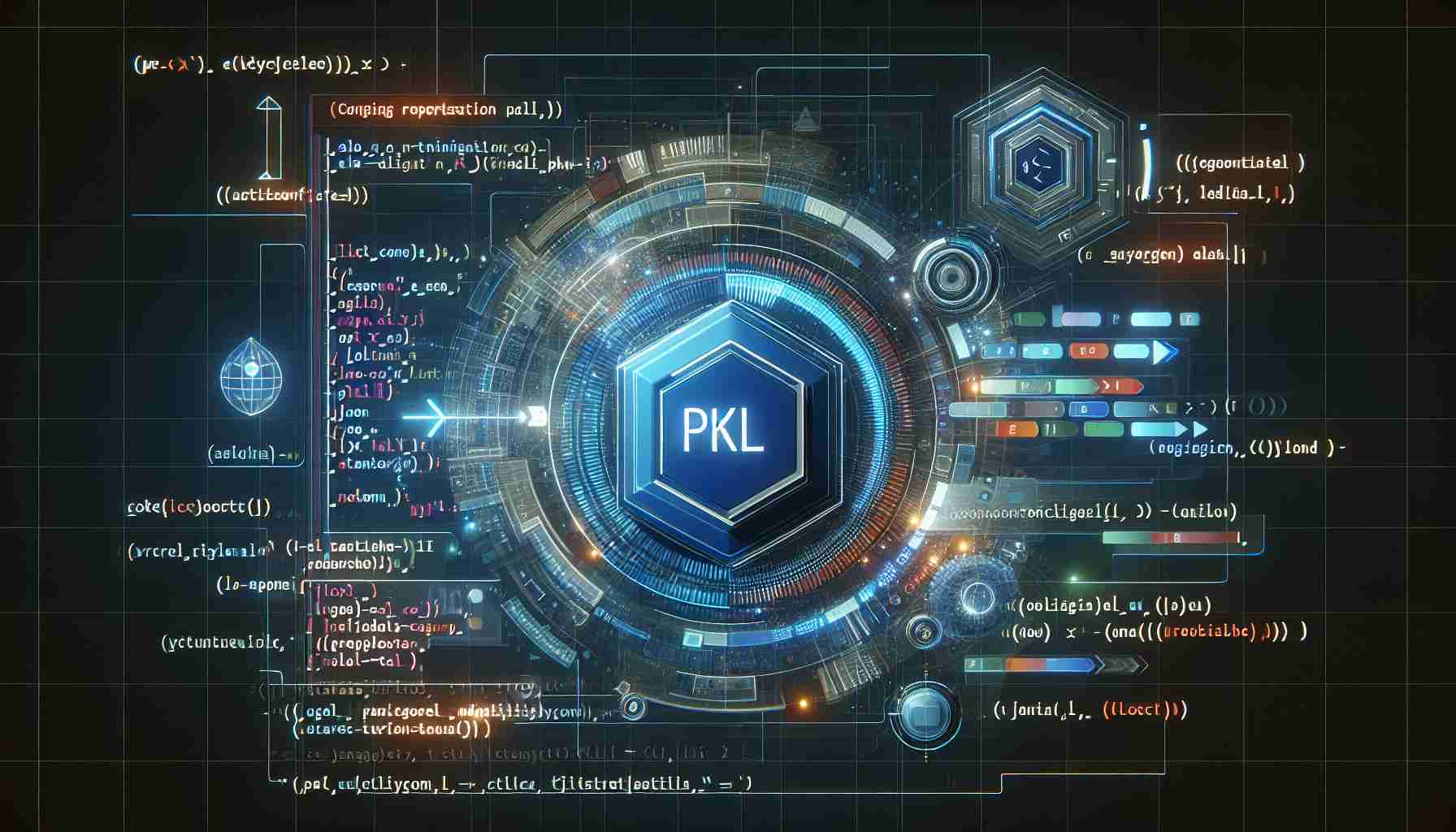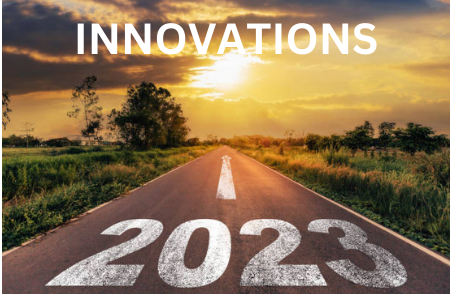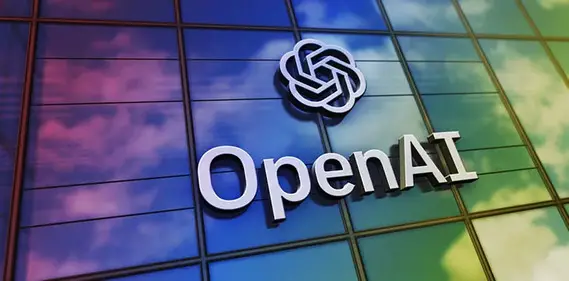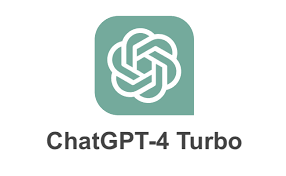Mastering Data Science in 2024: Your Comprehensive Roadmap to Success
By Vinius M Muthii | November 15, 2023
With the introduction of Artificial Intelligence and the growing proficiency in social media in the modern world, companies are leveraging these transformative technologies to their advantage. Data has become a crucial asset, serving as the key player in the success of companies. The effective use of data can be a game-changer, ensuring success, while neglecting its potential can lead to demise. This scenario has opened the doors for individuals to pursue a career in data science, a field currently in high demand with exciting career prospects.
In this article, we will explore the roadmap to data science in 2023, highlighting the key areas individuals should focus on to become masters in this field.
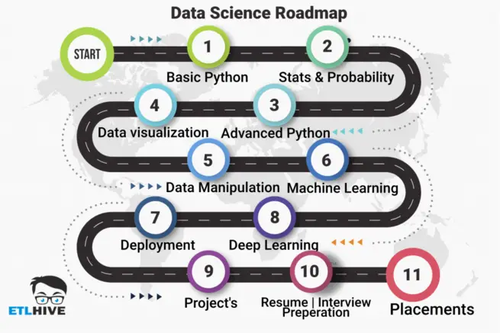
What is Data Science?
Data science is the study of data to extract meaningful insights for businesses. It is a multidisciplinary approach that combines principles and practices from mathematics, statistics, artificial intelligence, and computer engineering to analyze large datasets.
The purpose of data science is to extract valuable insights and patterns from datasets, enabling informed decision-making and problem-solving in a business context. Businesses in 2023 are increasingly leveraging data science to stay competitive and explore new ways to improve, making experts in this field highly valuable.
Data science is versatile and finds applications in various fields such as finance, marketing, health, and technology, providing ample opportunities for skilled professionals.
While it may appear straightforward, mastering data science requires a solid understanding of basic concepts in probability and statistics. Persistence and a commitment to continuous learning are essential, as in any other skill. Let's delve into the roadmap for becoming a data scientist in 2023:
1. Learn a programming Language
Data science proficiency begins with learning a programming language. Python and R are leading languages in statistics and data science.
Python, with tools like Pandas, Matplotlib, and Numpy, provides a deeper understanding of statistics, enabling tasks such as plotting graphs and data manipulation. Python is a must-learn language in 2023 for data science proficiency. Start learning and practicing Python language here.
R, designed primarily for statistical purposes, is essential for data scientists. It offers rich data manipulation and analysis tools, providing a deeper understanding of visualization and machine learning. It is an essential skill that many potential employers look for when considering personnel to handle data scientist roles. Learn and practice R language here.
Being a data scientist means an individual is able to manipulate data and get needed information and make decisions from the data. A mastery on data manipulation libraries such as Pandas and Numpy is very essential. These libraries need a lot of practice and concentration. Learn Pandas and Numpy here and master these important modules.
2.Data Exploration and Visualization
The primary goal of data exploration is to gain a preliminary understanding of the dataset, identify patterns, trends, and anomalies, and make informed decisions about subsequent steps in the data science process. This is a very important skill needed in data science that is characterized by key steps like handling missing data, cleaning data and identifying potential features.
The next step after gaining these insights about the data, we need to present this data to individuals. This involves data visualization which entails graphical representations of the data and showcase the underlying patterns. These visualizations include histograms, box plots ,scatter plots and more that aid in identifying patterns, outliers and the distribution of variables. Tools like Matplotlib and Seaborn can help greatly in creating these visualizations in our computer. Learn more on Matplotlib and Seaborn here.
For better data exploration and visualization practice, i recommend Jupyter Notebooks and R Markdown as they allow you to document the process, visualize results and share insights in a structured manner.
3. Machine Learning Fundamentals
This is a branch of Artificial Intelligence that involves the development of algorithms and models that allow systems to learn patterns and make decisions without explicit programming. This field is essential for data scientists as it forms the basis for building predictive models and extracting valuable insights from data. Leveraging AI is very essential even for data scientists as it is encroaching every aspect of technology.
Scikit-Learn is a popular machine learning library in Python for implementing various algorithms and conducting model evaluations. It forms a basis for leveraging AI in data science and is a great tool to master. Learn more on Scikit-Learn here.
4. Advanced Topics
After learning the later topics, its time to tackle complex challenges and expanding the skill set. Here we use complex components that enable data scientists to address broader range of challenges and work on cutting-edge projects in various domains. It involves features like:
Deep Learning
Deep learning is a subset of machine learning that involves the use of artificial neural networks to model and solve complex problems. It is inspired by the structure and functioning of the human brain, where interconnected neurons work together to process information.
Its ability to automatically learn hierarchical representations from data makes it a powerful tool for solving complex and high-dimensional problems. Other essential skills include Natural Language Processing, Computer Vision, and Time Series Analysis.
In order to use these advanced tools, advanced tools and frameworks are needed to achieve the needed results. TensorFlow and Pytorch are popular deep learning frameworks for implementing advanced models. Learn how to use TensorFlow and Pytorch from here.
With these steps in hand, creating a great portfolio and maintaining continuous learning to stay updated on the latest trends in data science are essential.
In summary, mastering data science requires building a strong foundation in fundamental concepts, programming, and advanced topics. The roadmap emphasizes practical experience, adaptability, and a commitment to ongoing learning, positioning data scientists to excel in a dynamic and evolving field. The ability to communicate findings, collaborate effectively, and adapt to changes is crucial for success in this ever-evolving landscape. Embracing a continuous learning mindset enables data scientists to contribute meaningfully across various industries.
Subscribe to our newsletter and follow us on social media channels to stay updated on important insights.
Never miss Technological Updates
Subscribe to our Newsletter
Join our Community
Follow us on social media to stay connected and engage with our vibrant tech community:







